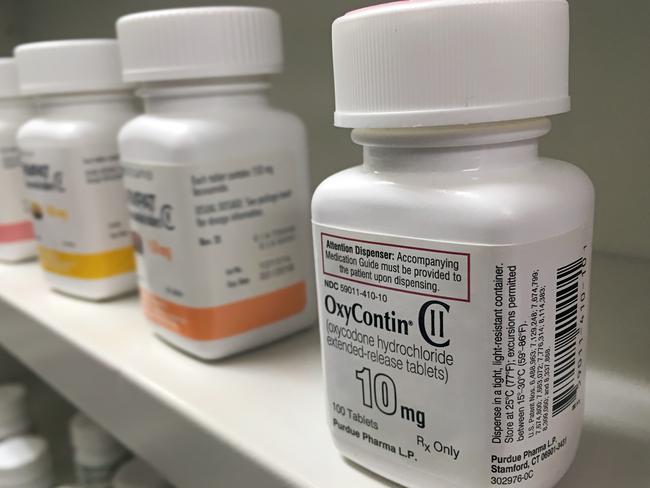Melbourne doctor supervised after concerns about prescriptions for drugs like opioids
A Melbourne doctor is being monitored after red flags were raised about the drugs she was prescribing to patients in a VCAT ruling.
Police & Courts
Don't miss out on the headlines from Police & Courts. Followed categories will be added to My News.
A Melbourne doctor is being monitored after red flags were raised about the drugs she was prescribing to patients, including opioids and morphine, a tribunal heard.
The Medical Board of Australia ordered Dr Nguyet (Madeleine) Thai to be supervised when prescribing certain drugs; have one-on-one tuition; and her clinical records audited after interventions from an alarmed pharmacist and the Department of Health.
The Victorian Civil and Administrative Tribunal heard a health department report found she had been prescribing schedule 8 drugs without a permit over several years, and was unaware of permit requirements, or the availability of SafeScript to check if patients were seeking high-risk drugs from other doctors.

After a permit was obtained, Dr Thai prescribed Oxycodone exceeding the maximum doses specified on her permit for the patient.
In another case, she prescribed MS Contin to the patient without the required permit, and had frequently prescribed Codeine (for a cough) despite recording a history of Codeine overuse, and heroin use for pain.
Dr Thai, who graduated from the University of Melbourne in 1988, and has worked at the Footscray Medical Clinic since 1992, sought unsuccessfully to have the conditions reviewed through an application to the Victorian Civil and Administrative Tribunal.
According to the judgment, Dr Thai accepted that she had made errors of prescribing and attributed those errors to a lack of knowledge about permit requirements, and ignorance of the SafeScript program.

“Of itself, this admitted lack of knowledge about permit requirements, in combination with the objective information about what Dr Thai was prescribing and to whom, is sufficient for a reasonable belief, which we hold, that this aspect of Dr Thai’s practice has been unsatisfactory for a considerable period of time; and that the conditions imposed were not only reasonable but necessary in the interests of patient and public safety,” the judgment said.
It found there was “objective information from her own clinical records” that her ability to identify and manage the care of drug dependent persons, and comply with her legal obligations when they sought certain drugs was unsatisfactory.

VCAT said it was a “challenging” area for GPs with the potential harm from pain relief drugs, but that only reinforced the importance of “staying up to date” before prescribing them.
“ … good and careful practitioners can come under pressure to prescribe, without necessarily recognising that what is happening is drug-seeking behaviour, or that they are the target of ‘doctor-shoppers’.”
The VCAT decision said it was a decision for the Medical Board of Australia whether Dr Thai has complied with the conditions imposed.
“We record, however, Dr Thai’s evident commitment to improving her practice through compliance with the conditions, and implementing what she has learned.”





